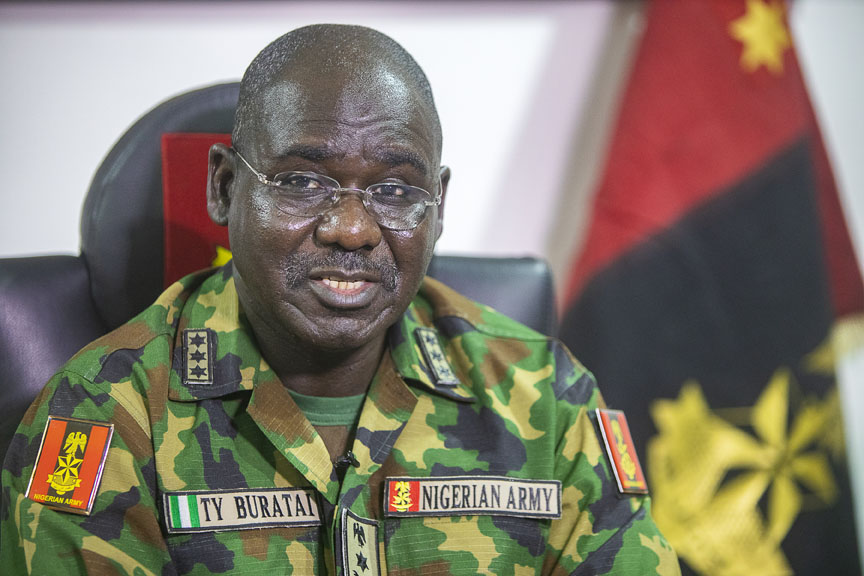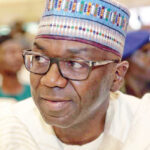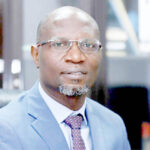Since the massacre at Zabarmari, the heads of Nigerian armed forces have featured in a cocktail of angry commentaries, with the call for their sack trending. It’s a tradition to which they are accustomed, and they seem to have developed a thick skin to such episodes of what must’ve struck them as a nuisance of the inconsequential public. At least that’s the message of Lieutenant-General Tukur Yusuf Buratai’s indulgence in a golf event in the week of national grief.
The emergence of the photograph of the Chief of Army Staff playing golf during the commissioning of a golf resort named after himself on December 5, emphasized the disdain with which the public are treated by the government. This indifference to the public perception of their role is the audacity enabled by having to keep their job despite their inability to record expected breakthroughs in the war against Boko Haram. Buratai was a part of Buhari’s dream of neutralizing Boko Haram since his appointment in 2015.
- The north is looking down the barrel (I)
- Women, children get training on martial arts for self-defence
Buratai’s disregard for optics is a blunder he can afford. He’s not elected, and his performance and continued stay in office are at the mercy of the President who’s a master of this art of undermining public opinion and dissents. When reminded about the military’s role in the Lekki shootings recently, and why a visa ban must be imposed on him, Buratai easily bragged that he did not leave the country until he was already 50 years and a General. He didn’t give a damn being barred from travelling abroad, he said.
That the “golf course” approach has become an acceptable template in dealing with the citizens merely asking for accountability and respect, and underpins the characteristic disinterest in public relations. What has baffled bystanders, even more, is the flurry of preventable image crises instigated by the demonstrated lack of remorse after serially failing to protect the people.
This week could’ve been President Buhari’s opportunity to redeem himself and manage his government’s escalating public relations. He had accepted, amidst the fierce critiques of his refusal to address the nation, the invitation to appear at the House of Representatives. But, in just a day to the long-awaited session, he walked back on that promise. This is the commander-in-chief of a country losing too many citizens to banditry, kidnapping and terrorism and with no solution in sight.
Buhari’s u-turn has left Nigerians with the option presented by Senator Kashim Shettima at the Senate during a hearing on the Zabarmari massacre. He called for the sack of service chiefs, as also demanded by the public. But doing so may seem like a fantasy to a government that prefers to debate the constitutionality of addressing the legislature instead of utilizing such offers to sell its proposal for protecting the people.
Even Governor Babagana Zulum too failed to read the room this week, and the backlash to his damning of optics wasn’t unexpected. The Borno state Governor chose the wrong time to launder the image of the President, citing that considerable progress had been made by Buhari in neutralising Boko Haram. That veneration of the government’s counterterrorism efforts just a few days after burying his people, is akin to laughing at the funeral of the 43 farmers whose graves are still fresh.
The backfired image-laundering strategy, which emphasized the reduced Boko Haram attacks in urban centres as proof of improvement in Nigeria’s counterterrorism measures under Buhari, is a consistent narrative deployed in the government’s propaganda since that hasty claim that the terrorist group had been “tactically defeated.” It’s a classist interpretation of conflict and based on the portrayal of killings in cities as the main measure of severity of a crisis. This barometer is probably why the brutal overrunning of the rural parts of the North by bandits and kidnappers exist as almost a norm to their policymakers lounging in Maitama and Asokoro.
Even as I wrote this, the country was possessed by a maddening quest to make sense of the abduction of the students of Government Science Secondary School, Kankara. The breaking news, to which no official response has been offered, painted a story of the invasion of the public school in Katsina state, and that about 600 students were missing after headcount. There’s neither an acknowledgement of the story nor clarification of details from the government, and they have been prolific in reacting to the tragic passing of Sam Nda-Isaiah around the time of the abduction. Mr. Nda-Isaiah was a significant figure in Nigeria’s history and deserved such presidential acknowledgement, but the public relations of doing so while ignoring the abduction of young students, is demoralizing. Governing is the ability to multitask.
But, even before their statement, it’s easy to predict their reaction. They would emphasize the error in the number of missing students reported in the initial story, which is 600 at this moment. Even if the original number was two or three persons short of the actual, they would emphasize it, and ridicule those who had reported the “fake” number just to underplay the tragedy. This interest in the accuracy of number over the gravity of such tragedy is an overused script in implementing their “golf course” public relations strategy.
On the same Friday, the social media was abuzz with a report of another tragedy in Katsina. A groom heading to Kaduna along with his friends and family for his wedding were all kidnapped. The news was reportedly broken at the venue of the wedding Fatiha, Danfodio Mosque, in Ungwan Sanusi. While these are frightening, they are just two cases of mostly unreported tragedies that haunt defenceless citizens across the North.
Nigerians must deal with this culture of politicians and their appointees abdicating governing responsibilities, for refusal to account to citizens amounts to one. In 2014, when the sinking of a passenger ferry led to 187 deaths in South Korea, the Prime Minister Chung Hong-won resigned amid criticism. The “cries of the families of those missing still keep me up at night,” he said. Last August, the entire Lebanese government resigned over an explosion that shook the base of Beirut, killing more than 150 people. The same month, the government and prime minister of Equatorial Guinea tendered their resignation to President Teodoro Obiang for failing to achieve proposed goals and leading the country to an economic crisis. This choice of resignations to redundancy has been the preference of sensible leaders across the world, from Tunisia to Estonia.
These high-profile resignations also outline the gravity of failure, for which a scapegoat must be presented even if to redeem a government’s disastrous image. The constitutional crisis currently hovering over the President’s refusal to honour the invitation of the very legislative body tasked with holding him to account should inspire the need for any Nigerian President’s mandatory and periodic in-person communication at the Legislative chamber to account for topical setbacks or crises. Our lawmakers should also consider adopting the American-style presidential communication system that upholds the periodic State of the Union addresses. The most important job in the country shouldn’t be a holidaying or a retirement jamboree.

 Join Daily Trust WhatsApp Community For Quick Access To News and Happenings Around You.
Join Daily Trust WhatsApp Community For Quick Access To News and Happenings Around You.


